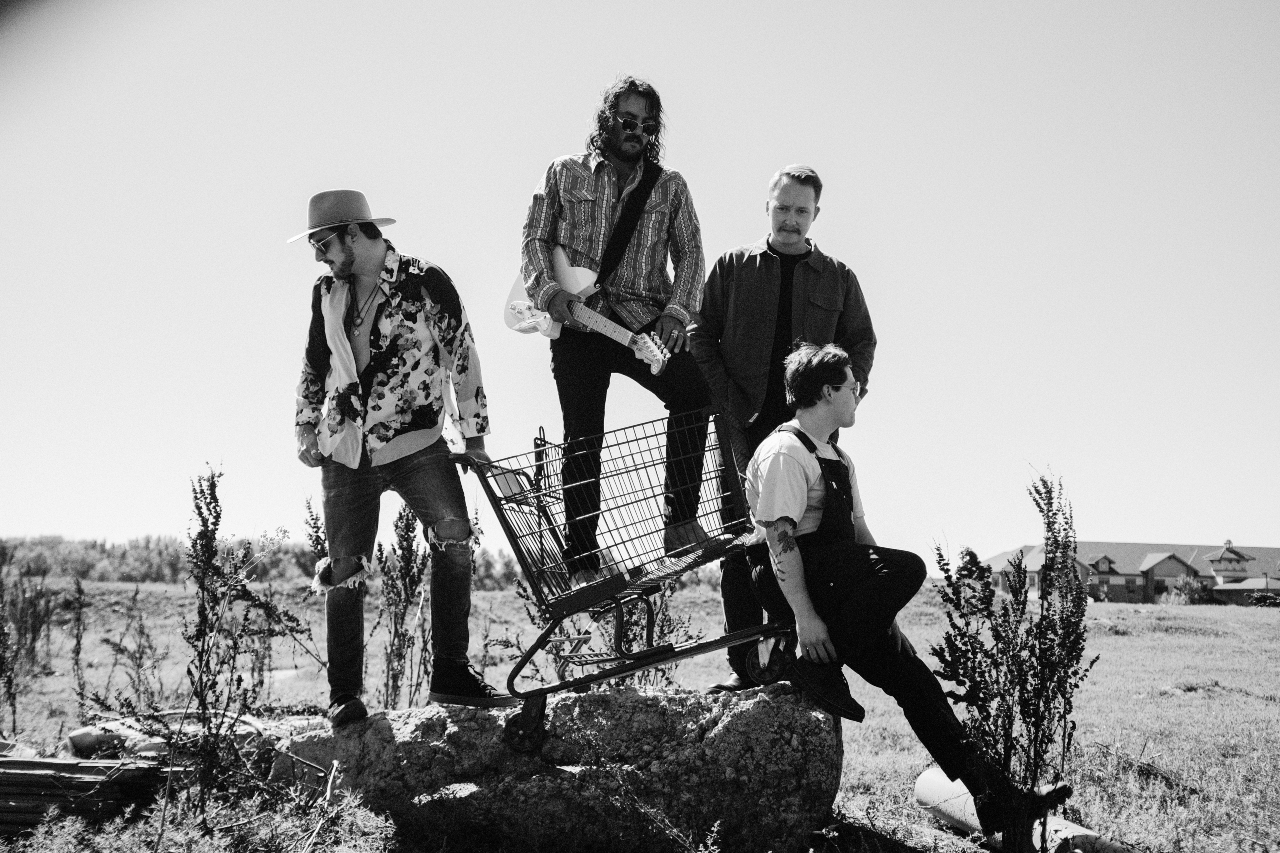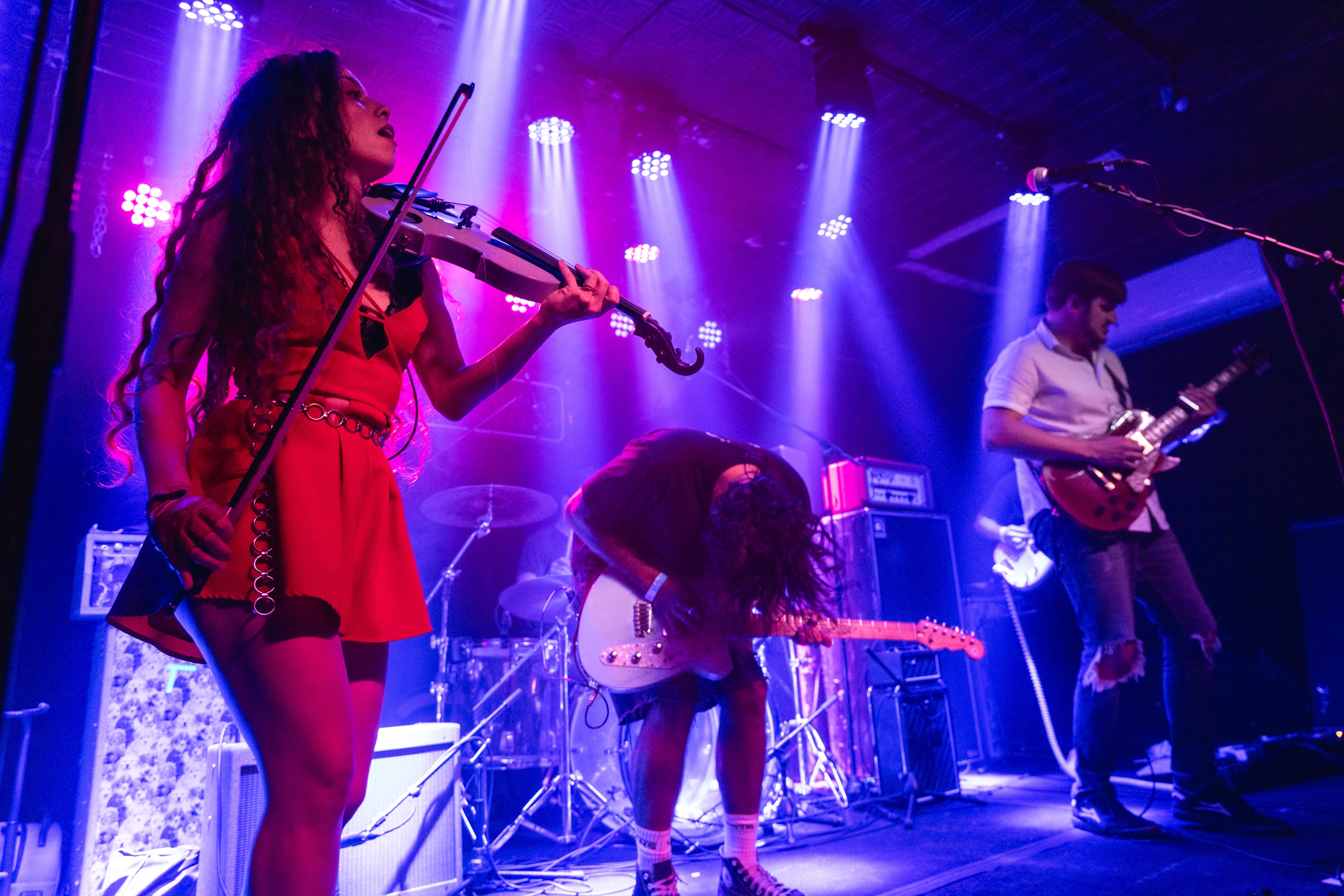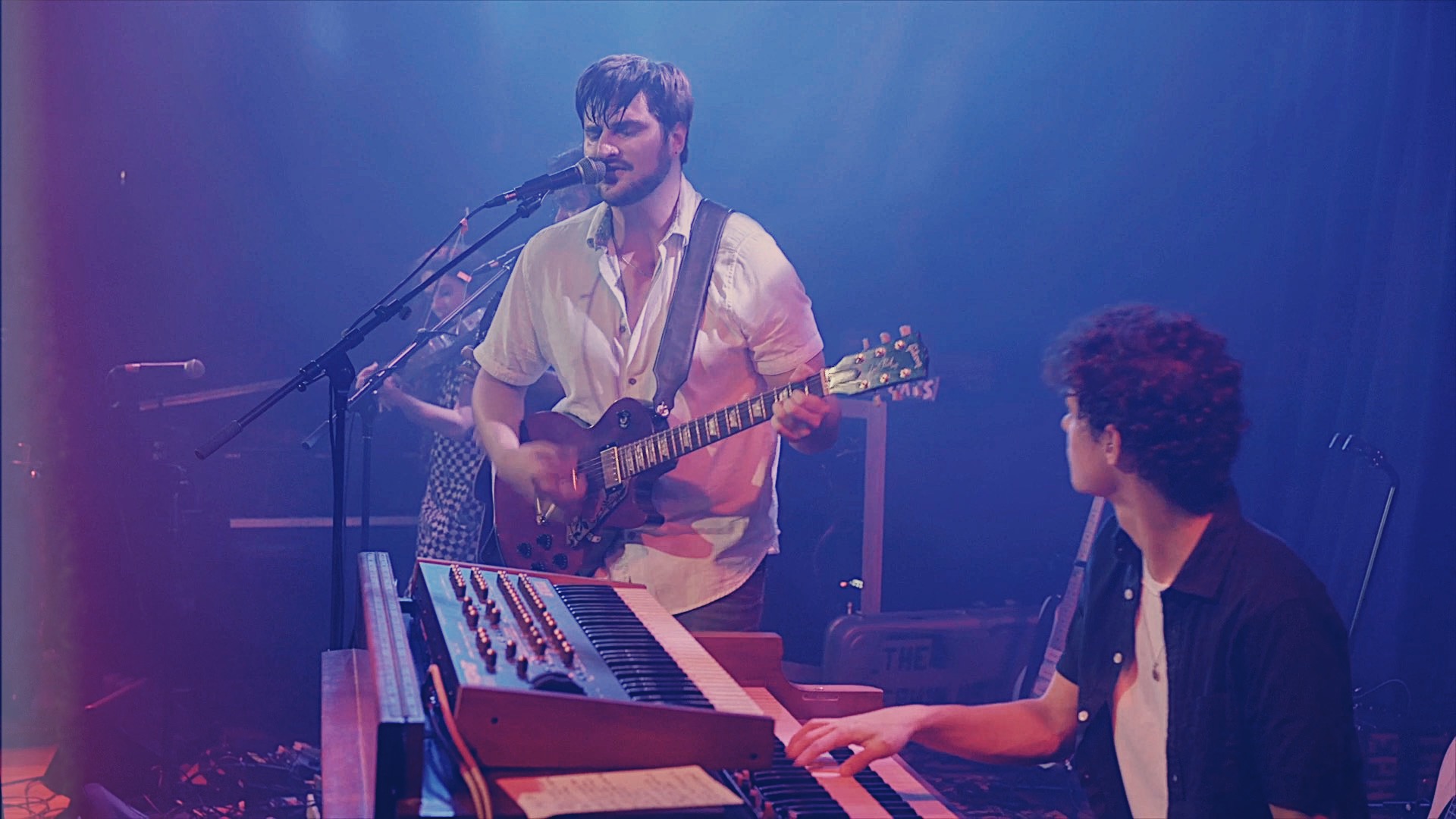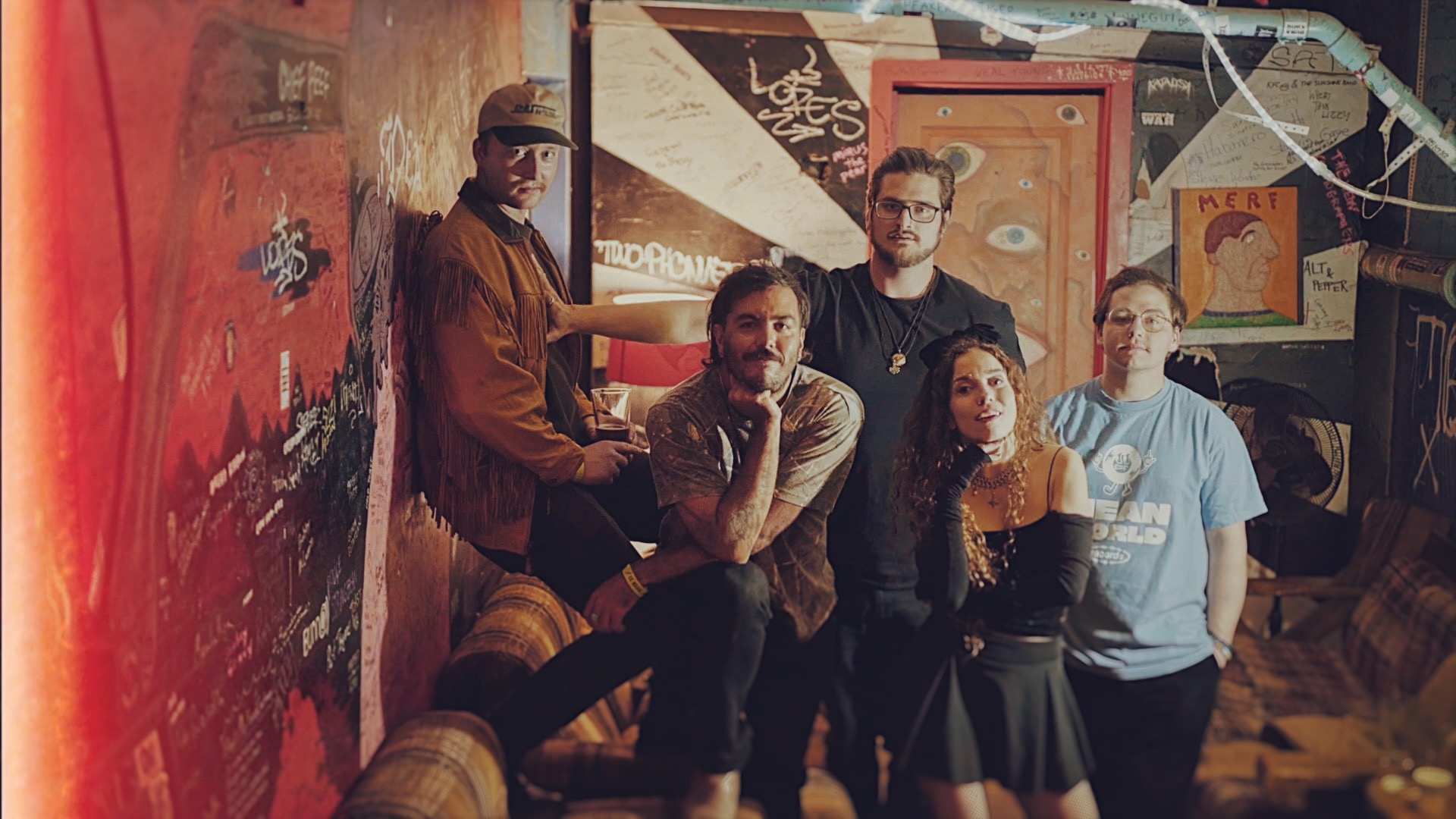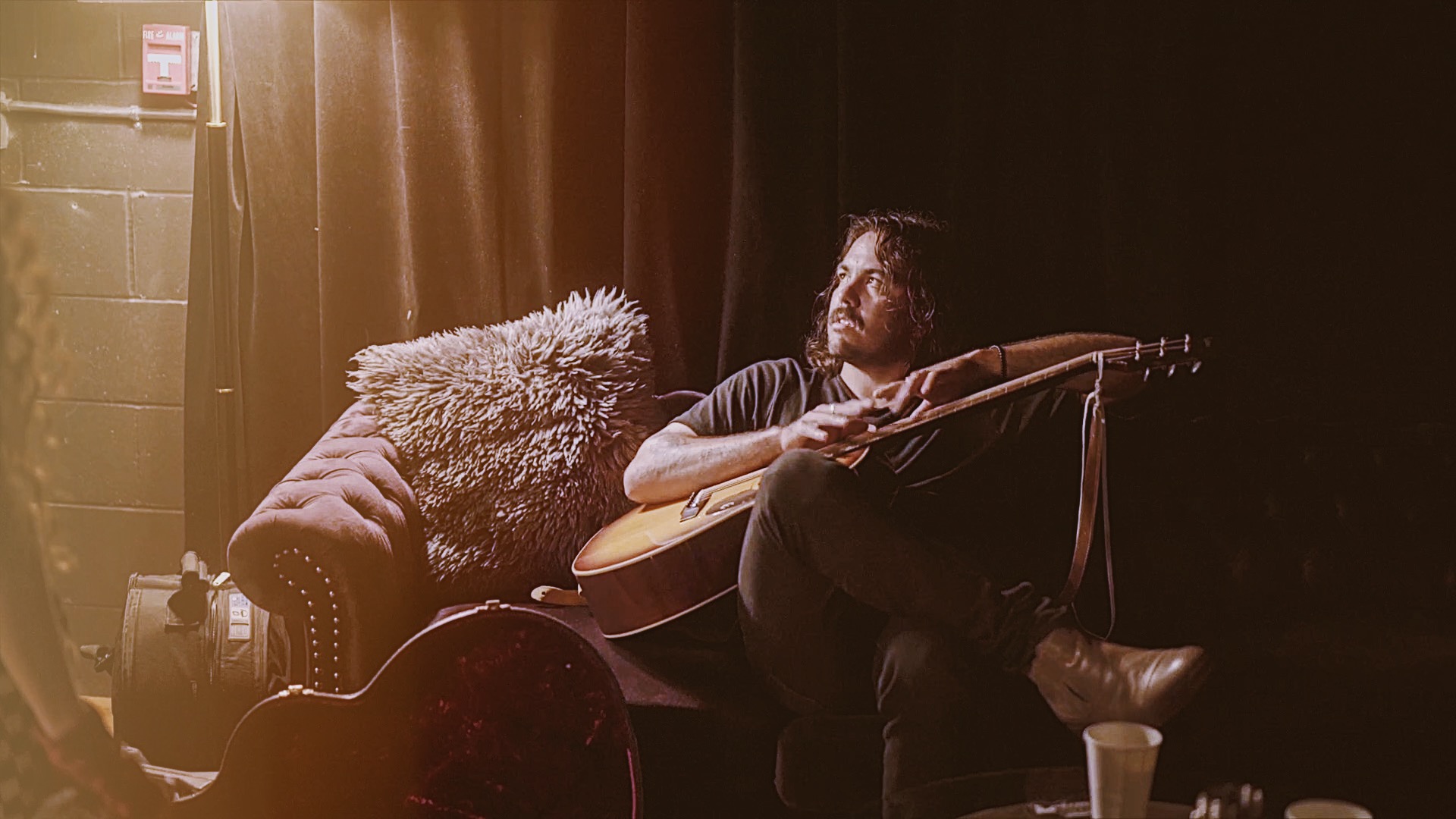Denver-based alternative rock band Shady Oaks is returning on November 3rd with their new single, “Broken Mirrors.” In the year since their last release, 2022’s MAD, the band has had the chance to calm down a little, to process the angst and anger that permeated that EP and focus on looking inward. This is not to say that their music doesn’t still feel like the sky cracking open, lightning coming down from the heavens and striking a glass of Buffalo Trace dripping onto a dirty bar. Shady Oaks’ new single feels like staring deep into that glass and finding the face of an ex-lover contorting itself as the ice melts, their memory simultaneously accusatory and comforting. It’s the feeling of taking the next steps propelled by those that have come before like looking at the horizon at dawn and running towards it to rid yourself of the night.
Ahead of the “Broken Mirrors'” release, 303 Magazine spoke with Shady Oaks’ mastermind Ty Gallaway about translating pain into art, the influence of time, killing ego and more.
READ: Ramakhandra Stands on Solid Ground With New Single “Minogame”
303 Magazine: To start off, I’m interested in hearing in your own words how y’all met and came together. What are the origins of Shady Oaks?
303:I’d like to follow that up with something a little more broad. Do you have any general thoughts on musical evolution, especially when it comes to being in a band? Do you think it’s inevitable or something that must be consciously worked towards? Is it a question of ability, familiarity, time or a big mix of all of the above?
TG: Woof, this song is tough to sing sometimes. I wrote the main guitar lick when I was 12, and could never put words to it. This track is one of three songs in our catalog that Jonah wrote the lyrics to. Jonah has always been a close friend of mine and we spent a lot of time together when I was with my ex. I am not sure that he saw a lot of the turmoil but I think he could always tell we were not happy. Especially me. After the fallout settled, he told me he had an idea for that guitar lick.
**Side note: At this time, Loren Dorland was a member of the band as well as the engineer for MAD and our upcoming EP. She would sing backing vocals and then lead vocals during choruses that she wrote. We parted ways after MAD was released but she is the one singing on Broken Mirrors.
The duet aspect came a little later but he knew it would be sort of an argumentative piece, telling the story of a relationship that was crumbling. When we decided to make it a duet with Loren, that is when the song really came to life. The first time we played it live, I was on the brink of tears as it hit a little too close to home. The yelling, the fire, the back and forth was just how it was at the end of the relationship. The perfect piece for two people who deep down knew they were stuck in a bad place. I like that it isn’t anyone’s fault because it wasn’t. It was the fault of both of them/us. When I sing it alone now, it is a little more one-sided which is an interesting note. Not sure I need to elaborate on that. The song was written with Loren’s parts so we wanted to keep it that way for the recording even if she isn’t in Shady Oaks anymore.





